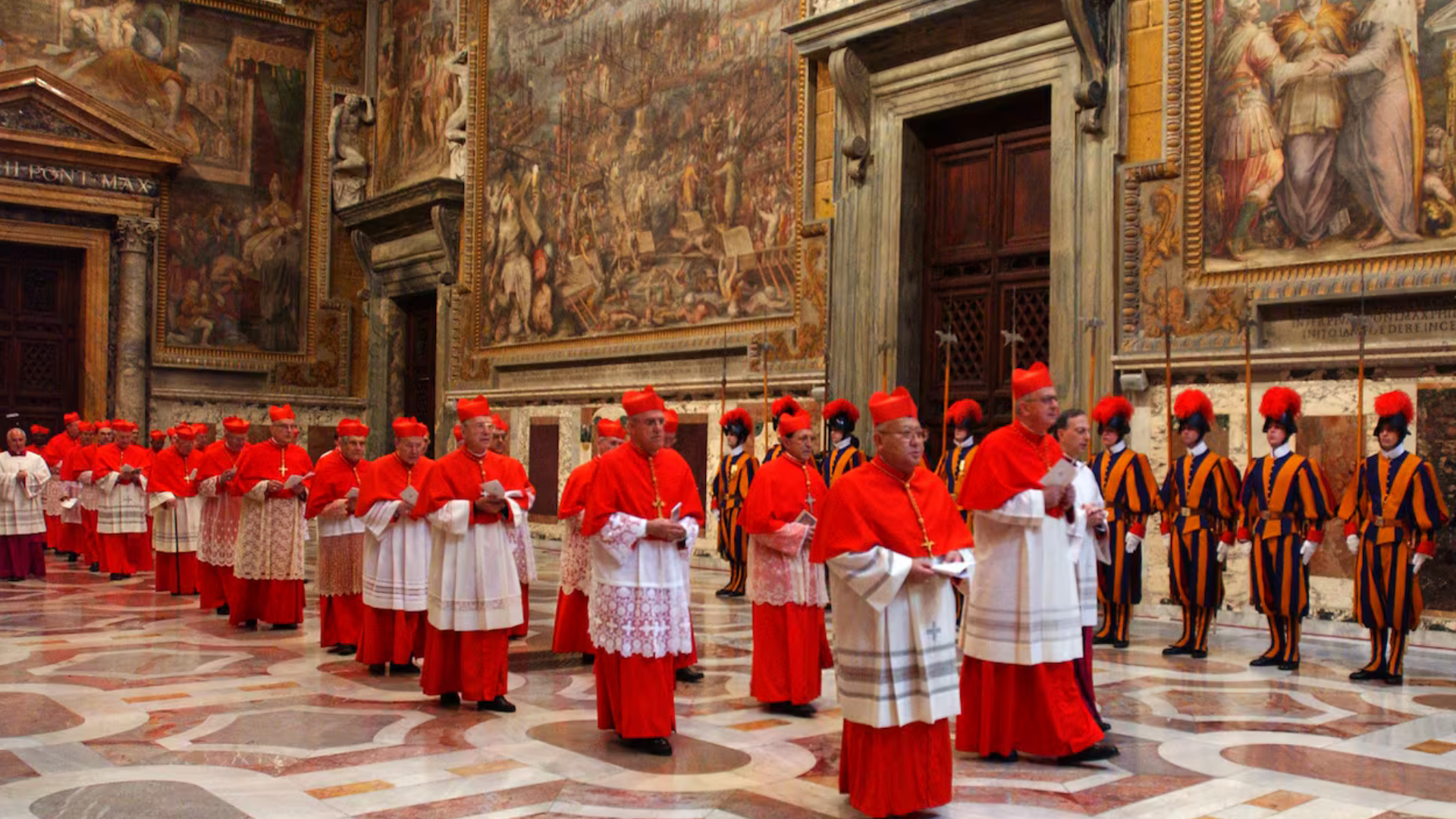The process of transitioning leadership in the Catholic Church—whether through the death or resignation of a pope—is steeped in centuries-old rituals and terminology. As the global Church prepares for such a moment, understanding the roles, Latin phrases, and traditions involved offers clarity.
At the heart of this transition is the camerlengo, or chamberlain, currently Irish-born American Cardinal Kevin Farrell. He is responsible for officially verifying the pope’s death and sealing his personal quarters. Until a new pope is elected, he administers the Vatican’s “goods and temporal rights.”
The College of Cardinals, comprising 252 members worldwide, assumes interim responsibility for Church affairs. Among them, 135 are under the age of 80 and thus eligible to vote for the next pope in a conclave. Most of these cardinal electors—108 to be precise—were appointed by Pope Francis, according to Vatican statistics.
The conclave, literally meaning “with a key,” refers to the secretive gathering in the Sistine Chapel where electors choose the new pope. Instituted in the 13th century, the conclave begins no later than 20 days after a pope’s death or resignation.
Electors are completely sequestered during this process, which in recent times has concluded within days. When the conclave is ready to commence, the master of papal liturgical celebrations—currently Archbishop Diego Ravelli—declares “extra omnes,” Latin for “all out,” instructing all non-electors to leave the chapel so voting can begin.
Italian Cardinal Giovanni Battista Re, the current dean of the College of Cardinals, is tasked with notifying the Church and diplomatic corps of the pope’s death. He also convenes and presides over the conclave, asking the elected candidate if he accepts the role and what name he will take. If a pope is elected, the protodeacon of the College—currently French Cardinal Dominique Mamberti—steps onto the loggia of St. Peter’s Basilica and announces “Habemus Papam,” Latin for “We have a pope,” followed by the new pope’s chosen name.
Voting is a structured affair, overseen by three groups of cardinals selected by random draw: scrutineers who count and announce the votes, revisers who double-check them, and infirmarii who collect ballots from any sick electors. A two-thirds majority is required to elect a pope.
If the process is prolonged, the top two vote-getters may go to a runoff, but the two-thirds requirement still applies. This procedure is outlined in Universi Dominici Gregis, the constitution issued by St. John Paul II in 1996 and later amended by Pope Benedict XVI to maintain the two-thirds threshold throughout.
Each voting round concludes with the burning of ballots. If no pope is chosen, chemicals are added to produce black smoke; if a new pope is elected, white smoke signals the decision to the outside world, along with the ringing of bells. The elected pope receives the Fisherman’s Ring, symbolising his role as a “fisher of men.” While it was once destroyed upon a pope’s death, it is now “annulled” to prevent misuse.
The interregnum is referred to as sede vacante, Latin for “vacant seat.” During this time, all cardinals gather in the General Congregations, closed-door meetings to discuss major Church affairs and finalise preparations for the conclave. These discussions are secret and carried out under oath.
St. Peter’s Basilica plays a central role during this period. Built over the tomb of the apostle Peter, it is one of the largest and most significant Catholic churches. It becomes the site where the pope’s body lies in state, allowing the faithful to pay their final respects. The basilica is home to major artworks, including Michelangelo’s Pietà and Bernini’s bronze baldacchino.
Pope Francis, notably, has expressed his wish to break with tradition by being buried not in the Vatican but in Rome’s Basilica of St. Mary Major, near the icon of the Virgin Mary he holds dear—Salus Populi Romani. In his will, he requested a simple underground tomb inscribed only with “Franciscus.”
Francis also chose as his motto miserando atque eligendo, Latin for “having had mercy and choosing him,” a phrase drawn from the homilies of St. Bede the Venerable and referencing Jesus’ call to Matthew in the Gospel.
Another key Vatican site is the Domus Santa Marta, the guesthouse where the cardinals stay during the conclave. Pope Francis famously chose to live there after his election, opting for a modest suite over the traditional papal apartments.
Finally, the rogito—a Latin document detailing the pope’s life and papacy—is placed in his coffin, with a copy kept in the Vatican archives. It serves as a formal record of a papal legacy that, through tradition, ritual, and symbolism, passes solemnly into history.
Source: Ekathimerini.
